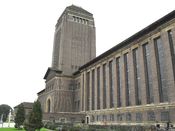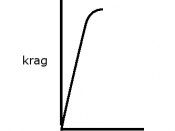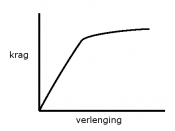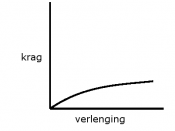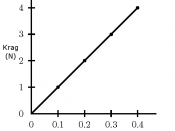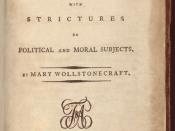The Enlightenment Thinkers and Their Major IdeasPhilosopherDatesImportant WorksMajor ideasThomas Hobbes1588-1679LeviathanÃÂPeople need a powerful ruler like a sea monsterÃÂ-All humans are naturally selfish and wicked.
-Without government and order, people will fight.
-You need a strong ruler, and in return you gain law and order-In favor of Absolute Monarchy because they impose order and demand obedienceJohn Locke1632-1704Essay Concerning Human UnderstandingTwo treatises on Government-People can learn from experience and improve themselves.
-People have the natural ability to govern their own affairs and look after the welfare of their society.
-Criticized Absolute Monarchy and wanted self government-All people are born free and equal and have 3 natural rights*life*liberty*property~The government has to protect these rights. If they donÃÂt, the people can overthrow the government-Government power comes from the consent of the people.
-Basis of modern democracy-Founder of empiricism - What is the extent of human understanding? - We can know God; we can know morality-Government is a covenant between the rulers and the governedMontesquieu1689-1755Spirit of Laws-Studied political liberty and believed in the separation of powers-Separation of power keeps any one individual from gaining total control over the government-3 branches of government with a checks and balance system is the basis for U.S.
Constitution to prevent the abuse of powerVoltaire1694-1778CandideOver 20,000 papers and essays-Fought for tolerance, reason, freedom of religious beliefs and freedom of speech.
-The most inhumane crimes have been perpetuated in the name of religion. Secular values should take precedence over religious ones.
-Through reason and intellect mankind can create a just and moral society.
-Did not trust the average person ÃÂ not an advocate for democracy.
-Supported monarchy and aristocracy, though he criticized bothJean-Jacques Rousseau1712-1778Discourse on the moral effects of the Arts and SciencesThe Social ContractÃÂAn agreement among free individuals to create a society and governmentÃÂ-Individual freedoms-Civilization corrupts peopleÃÂs natural goodness-The only good government was one freely formed by the people, a direct democracy-Promotes equal rights.
-Promotes liberty. Government should protect the rights and equality of everyone, not just the property of the aristocracy.
-Everyone enters into a social contract in order to be part of society. According to that contract, they agree to behave a certain way.
Copernicus1473-1543On the Revolutions of the Heavenly Spheres-Heliocentric Theory -The sun is at the center of the universe, not the earth and all the stards, Earth and other planets revolve around the sunGalileo1564-1642The Starry Messenger*Described his observations*Dialogues on the Two chief systems of the world-Jupiter had 4 moons and the sun has dark spots, EarthÃÂs moon has a rough, uneven surface-Supported theories of Copernicus-Insisted that the universe operated according to mathematical functions.
-Light objects fall as fast as heavy objects-Improves upon the telescope and becomes the first person to use it to study the moon and planets-Religion cannot explain natural phenomena, only math canNewton1643-1727Principia Mathematica(The Mathematical Principals of Natural Philosophy)*The universe is desrcribed as a giant clock and all parts work together perfectly in ways that could be expressed mathematically.
OpticsLaw of gravity*Every object in the universe attracts every other object*The degree of attraction depends on the mass of the objects and the distance between them-Universal laws of motion and gravity ÃÂ the power of math-How to ask questions about nature and answer them with science.
- Laws of inertia ÃÂ an object in motion stays in motion unless acted upon by an outside force. An object at rest stays at rest unless acted upon by an outside force ÃÂ Prime mover ÃÂ GODWollstonecraft1759-1797A Vindication of the Rights of Woman-Argued that women, like men, need education to become virtuous and useful.
-Women should enter male dominated fields of medicine and politics.
Harvey1578-1657Anatomical Exercise on the Motion of the Heart and Blood in Animals), or, as it came to be known, De Motu Cordis.-Discovered how blood flowed through the body.
-Discovered the reproduction of humans and mammals while at the University of Cambridge.
Andreas Vesalius1514-1564On the Structure of the Human Body-Dissected human corpses and published his observations. He had detailed drawings of human organs, bones, and muscles.
-before Vesalius, people dissected animals to study anatomy because they were believed to be the same as humans & were against the beliefs of the Catholic Church to dissect a human.
Hooke1635-1703Micrographia, (a book describing his microscopic and telescopic observations, and some original work in biology)-Hooke coined the term cell for describing biological organisms- Hooke is known principally for his law of elasticity (Hooke's Law).
-He is also remembered for his work as "the father of microscopy" ÃÂ it was Hooke who coined the term "cell" to describe the basic unit of life
